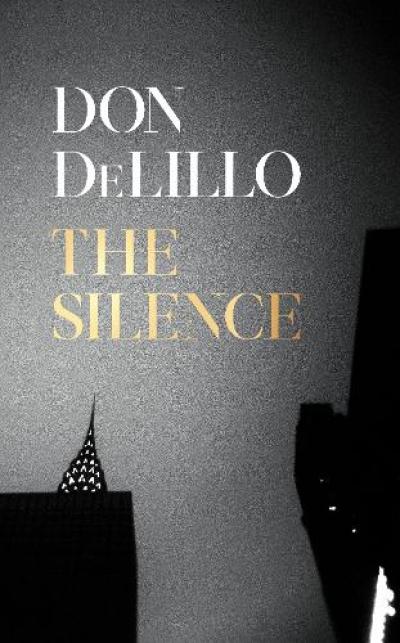Don DeLillo’s latest novella, The Silence, has been marketed with an emphasis on its prescience, describing the shocked lacuna of time around a devastating event whose repercussions are yet to be truly felt. It is a compelling short read, but a little bit too pretentious to be read without a certain amount of cynicism (particularly when the characters reel off long, declamatory statements about cryptocurrency).
The Silence has echoes of other texts, with two in particular that stand out. The first was DeLillo’s own 1997 behemoth Underworld, with significant ball games being played in both. The Silence’s game is stopped abruptly by the event, with one of the characters taking up its narration in front of a blank screen. Here, there is also more than a nod to David Foster Wallace’s dystopia, Infinite Jest, which centred around a film so wonderful its viewers were found starved to death in front of the TV screen. It’s also there in a reference to footnotes and the esoteric naming of a stadium.
 It’s hard, especially with these references, to get away from the sense that this is a significant late text by A Great American Novelist. Still, as the book progresses, it argues its own case well. It follows five characters who are due to come together to watch the aforementioned game, two of whom (Tessa and Jim) are flying into New York at the opening of the book. The event, which seems to have disrupted all technology, downs their plane, but they survive, more or less unscathed. Their recollection of events seems to be slippery, hazy, and they revert back to primal instincts, having sex in the first bathroom that they come across.
It’s hard, especially with these references, to get away from the sense that this is a significant late text by A Great American Novelist. Still, as the book progresses, it argues its own case well. It follows five characters who are due to come together to watch the aforementioned game, two of whom (Tessa and Jim) are flying into New York at the opening of the book. The event, which seems to have disrupted all technology, downs their plane, but they survive, more or less unscathed. Their recollection of events seems to be slippery, hazy, and they revert back to primal instincts, having sex in the first bathroom that they come across.
The Silence is filled with slippages, elisions, lacunae: what is not said. The characters talk at one another, riffing on their own obsessions, culminating in a series of monologues that conclude the book. Their talk ranges from ceilings in Rome to the worship of Einstein, skeins of thought that never really come together but are loosely gathered under a sort of exploration of life, its meaning, and the temporal and spatial confusion that underlies the book.
The confusion comes from an external event, but the outside is rarely seen, except when another character, Max, storms out of the apartment where he is hosting the gathering with his partner. Instead, turmoil is internal, especially given that the technology shut-down forces people not only into their own houses, but also into their own minds. Their external reference points are beginning to be lost: Tessa at one point speaks in a language that “is simply fake, a dead language, a dialect, an idiolect”. The characters envisage people spilling out onto the street, mixing together in homogenous masses, without the guiding lights of technology and the artificial borders of society.
It is this breakdown that feels prescient, given the past year, even though it feels as though this particular terrible event has had the opposite effect: a firmer drawing of borders, isolation, and an even greater reliance on technology. The Silence may not be the perfect vehicle to explore another world-changing event, but it shows us what might have been, had the virus been technological and not airborne.
- The Silence by Don DeLillo (Picador, £14.99)
- Read more book reviews on theartsdesk















Add comment